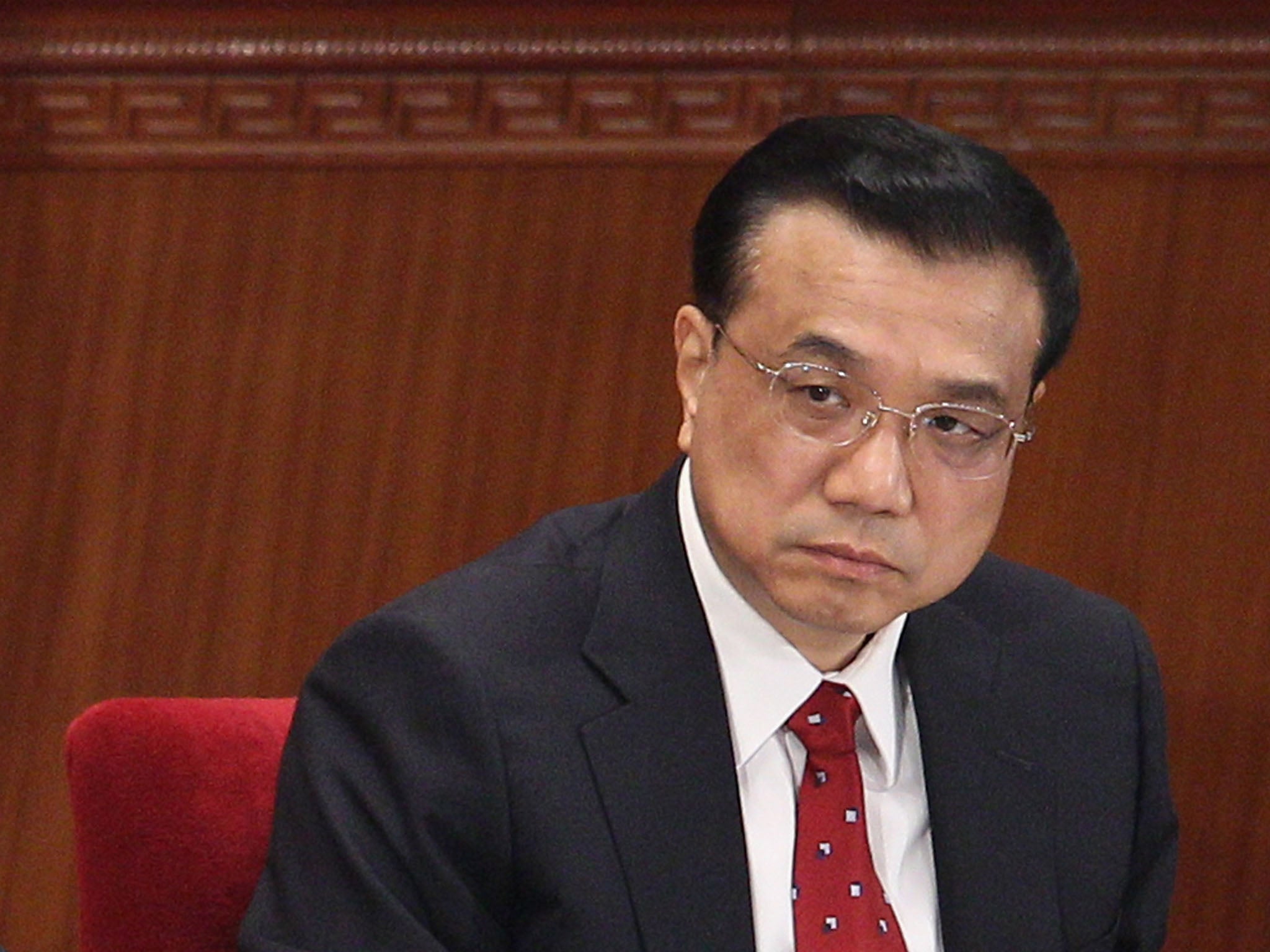Li Keqiang urges deeper urbanization to support China's growth

Your support helps us to tell the story
From reproductive rights to climate change to Big Tech, The Independent is on the ground when the story is developing. Whether it's investigating the financials of Elon Musk's pro-Trump PAC or producing our latest documentary, 'The A Word', which shines a light on the American women fighting for reproductive rights, we know how important it is to parse out the facts from the messaging.
At such a critical moment in US history, we need reporters on the ground. Your donation allows us to keep sending journalists to speak to both sides of the story.
The Independent is trusted by Americans across the entire political spectrum. And unlike many other quality news outlets, we choose not to lock Americans out of our reporting and analysis with paywalls. We believe quality journalism should be available to everyone, paid for by those who can afford it.
Your support makes all the difference.Li Keqiang, set to become China's premier in March, said the nation must deepen its rural-urban population shift to support growth while avoiding the economic stagnation associated with middle-income countries.
Urbanization is a "huge engine" of China's future economic growth, Li, currently vice premier, said Wednesday in a full-page article on economic development on page three of People's Daily, the Communist Party's mouthpiece.
The article represents the first policy markers laid down by Li, 57, since he was appointed last week to the No. 2 position on the Politburo Standing Committee behind Xi Jinping as part of a once-a-decade power handover. China's urban population of just above 50 percent is "much lower" than the 80 percent in developed nations, said Li, whose championing of urbanization has been a central theme of his career.
"Urbanization is not about simply increasing the number of urban residents or expanding the area of cities," Li said in People's Daily. "More importantly, it's about a complete change from rural to urban style in terms of industry structure, employment, living environment and social security."
Li also reiterated points made this month by officials including President Hu Jintao, saying China will "steadily" push forward with making interest and exchange rates more market-based.
Li didn't discuss the near-term outlook for the economy or provide specific forecasts, instead focusing on longer-term issues. Premier Wen Jiabao said Tuesday at the East Asia Summit in Phnom Penh, Cambodia, that the Chinese economy is becoming more stable, will maintain "relatively fast growth" and "develop at a higher level," according to the official Xinhua News Agency.
China's gross domestic product is poised to expand 7.7 percent this year, the weakest pace since 1999, based on the median estimate of analysts surveyed by Bloomberg News this month. Growth may pick up to 8.1 percent in 2013, according to the median of 46 forecasts.
Li said China is facing the risk of falling into the so- called "middle-income trap" now that its per-capita GDP has reached such a level. "There are many countries in the world that when they reached the middle-income stage, they witnessed serious structural problems such as growth stagnation, a widening wealth gap and increasing social unrest," Li said.
Join our commenting forum
Join thought-provoking conversations, follow other Independent readers and see their replies
Comments